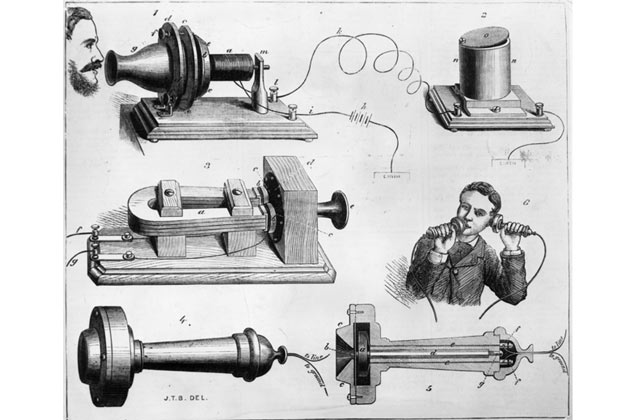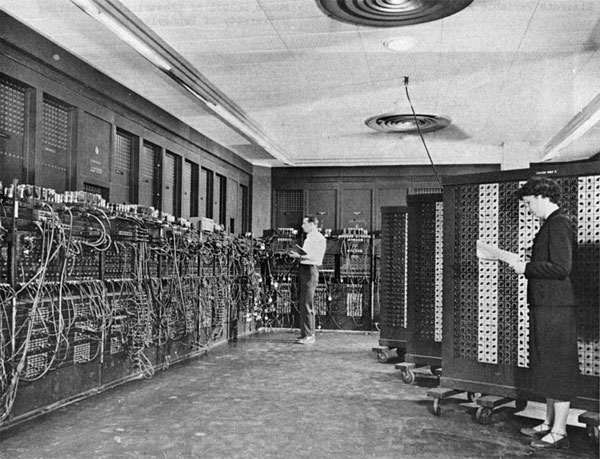https://ift.tt/1tOpr65
No, these don’t come from psychic hotlines. The following are 10 WRONG predictions in the tech world from VIPs of the day. History gave them cause to eat their words. The good news is that you can indeed build a better mousetrap – even if no one believes you!
10. The Telephone
“This ‘telephone’ has too many shortcomings to be seriously considered as a means of communication.” — Western Union internal memo, 1876.
Whether this was belief or wishful thinking on the part of Western Union, they didn’t get the memo. Instead they wrote the one above when a broke Alexander Graham Bell, inventor of the first successful telephone, offered to sell his patent to Western Union for $100,000. Not only did they turn him down, company officials made the additional following comments: “We do not see that this device will be ever capable of sending recognizable speech over a distance of several miles. Hubbard and Bell want to install one of their telephone devices in every city. The idea is idiotic on the face of it. Furthermore, why would any person want to use this ungainly and impractical device when he can send a messenger to the telegraph office and have a clear written message sent to any large city in the United States? [This device] is hardly more than a toy… and of no use to us.” In the 1870s, both Elisha Gray and Alexander Graham Bell designed devices that could transmit speech electrically and both rushed to the patent office within hours of each other. Bell was faster, but it took the courts to decide the real inventor — Bell.
9. The Automobile
“The horse is here to stay but the automobile is only a novelty–a fad.”
One can only imagine the number of “clean-up” jobs that would be available in New York alone had this prediction, by the president of the Michigan Savings Bank, come true. This advice was given to Henry Ford’s lawyer, Horace Rackham, to discourage him from investing in the Ford Motor Company in 1903. Rackham decided to ignore the warning and invested five thousand dollars in Ford stock. He later sold his stock for $12.5 million. In 2012 there were over 84 million motor vehicles produced worldwide. Approximately 259 million vehicles are in use in the United States, and, in 2007 it was estimated that 802 million cars and light trucks were on the road.
8. My Kingdom for a horse? Neighs to railroads!
Most of us have heard the old objections to motorized vehicles “replacing” the horse. The most hilarious of these involved Parliamentary opposition to building a railway in England in 1825 between Liverpool and Manchester. Pamphlets and newspapers were wildly inane and insane over the prospect. The hazards have been described as follows: The railway would prevent cows from grazing and hens from laying. The poisoned air from the locomotives would kill birds and render the preservation of pheasants and foxes no longer possible. Nearby houses would be burned to a crisp from the engine-chimneys. Clouds of smoke would pollute England. Horses would die out as who would make a profit from oats and hay? Traveling by road would be highly dangerous, and country inns would be ruined (don’t ask me why). Boilers would burst and blow passengers to atoms. But there was always this consolation to wind up with — that the weight of the locomotive would completely prevent its moving, and that railways, even if made, could never be worked by steam-power! Essentially, the railroad would not only be a blight, but turn England into Hiroshima! Guess what? It didn’t happen.
7. Flying Machines, Radios, and X-rays
“Heavier-than-air flying machines are impossible.” “Radio has no future.” “X-rays are a hoax.”
These wrong predictions were made by one of the greatest physicists of his time, William Thomson, Lord Kelvin (1824 – 1907). The Irish genius patented 70 inventions starting at age 16. In addition to discovering the Joule-Thomson cooling effect, he invented the mirror galvanometer, used in the first transatlantic telegraph cable linking Ireland with Canada, almost risking his life while supervising the laying of the cables. In 1870, he worked in navigation, designing an improved compass, which, in 1882 was adopted by the British Navy. It is ironic that the man who was knighted in 1886, among many other honors including the Kelvin (K) scale, had no faith in flying machines, radios or X-rays, saying in a 1900 address to physicists at the British Association for the Advancement of Science, “There is nothing new to be discovered in physics now. All that remains is more and more precise measurement.” One can only wonder how he’d feel knowing there’s a Crater Thomson on the moon!
6. Television
“Television won’t be able to hold onto any market it captures after the first six months. People will soon get tired of staring at a plywood box every night?”
This was said by none other than film studio mogul, Darryl F. Zanuck in 1946. He wasn’t alone. In a 1939 article, The New York Times wrote: “The problem of TV was that people had to glue their eyes to a screen and that the average American wouldn’t have time for that.” They were right. People needed extra time. According to a 2010 Neilsen study, the typical American glues their eyes to the screen five hours a day! (Where was Marshall McLuhan when The Times needed him?) More … there are more and more sets in each home to avoid those nasty fights when Mom wants to see a Britcom, Dad wants to watch the ball game, and the children are hooked on Survivor.
5. Nuke it?
“There is not the slightest indication that [nuclear energy]will ever be obtainable. It would mean that the atom would have to be shattered at will.”
This quote that appeared in the Pittsburgh Post-Gazette on December 29, 1934, came from of all people, Albert Einstein while in the same year Enrico Fermi discovered that if uranium is bombarded with neutrons, the uranium atoms will release energy by splitting up into lighter elements. Of course a mere five years later, scientists had a better handle on nuclear fission realizing that a chain reaction, once started, would increase, causing a massive explosion. By 1942, the chain reaction was created experimentally. Allegedly, Fleet Admiral Leahy told President Truman “This is the biggest fool thing we’ve ever done – the bomb will never go off – and I speak as an expert on explosives.” It did. The first atomic bomb used in War exploded over Hiroshima on August 6, 1945. But nuclear power turned out to be both a curse and a blessing. In 1954, the Soviet Union became the first country to use this awesome discover to supply electricity from its Obninsk nuclear power plant.
4. Outer Space
“A rocket will never be able to leave the Earth’s atmosphere.” The New York Times, 1936.
Was the Grey Lady’s face red, when in January of 1946, a mere ten years later, the U.S. started research into outer space. On March 22 at White Sands Proving grounds, the first American built rocket, WAC, was launched reaching an altitude of 50 miles becoming the first American rocket to leave the Earth’s atmosphere. Between 1969 and 1972 not only did we leave our atmosphere, but during the six manned Apollo missions (1969 and 1972) 12 American astronauts reached the moon. The first two men to set foot on the moon were Neil Armstrong and Edwin “Buzz” Aldrin on July 20, 1969. Oh, and by the way, The Times finally offered a retraction on July 17, 1969, as Apollo 11 was on its way!
3. Computers
“I think there is a world market for maybe five computers.” — Thomas Watson chairman of IBM, 1943.
Need we say more? Back in the day many did. Ken Olsen, founder of the Digital Equipment Corp., said: “There is no reason for any individual to have a computer in his home.” His remarks were part of his address in Boston to the World Future Society in 1977 and widely quoted. Olsen, however, has contended that the remark was taken out of context explaining he wasn’t talking about personal computers but a master computer system that would control the home. Meanwhile since the mid-1970s over a billion personal computers have been purchased worldwide.
2. The Internet
“The Internet will soon go spectacularly supernova, and in 1996 catastrophically collapse.”
This embarrassing statement was made by the brilliant Robert Metcalfe, in a 1995 issue of InfoWorld. In fact, he promised to “eat his words” if he was wrong. The award-winning Dr. Metcalfe, with a PhD from Harvard, who co-invented the Ethernet, founded the 3Com digital electronics company and as of January 2006, became a general partner of Polaris Venture Partners. He later made good on his 1995 promise. During his keynote speech at the sixth International World Wide Web Conference in 1997, armed with a handy blender, he ingested the magazine page containing the quote!
1. Remote Shopping
“Remote shopping, while entirely feasible, will flop because women like to get out of the house, like to handle merchandise, like to be able to change their minds.” –TIME magazine in 1966.
We assume the magazine meant catalog shopping, but the concept proved untrue. E-commerce sales were over a trillion dollars in 2012. It seems that women are getting out of the house to do other things these days.
TECH
TRENDS,AMAZING
via Toptenz.net http://www.toptenz.net
May 13, 2018 at 08:16PM
.png)











No comments:
Post a Comment